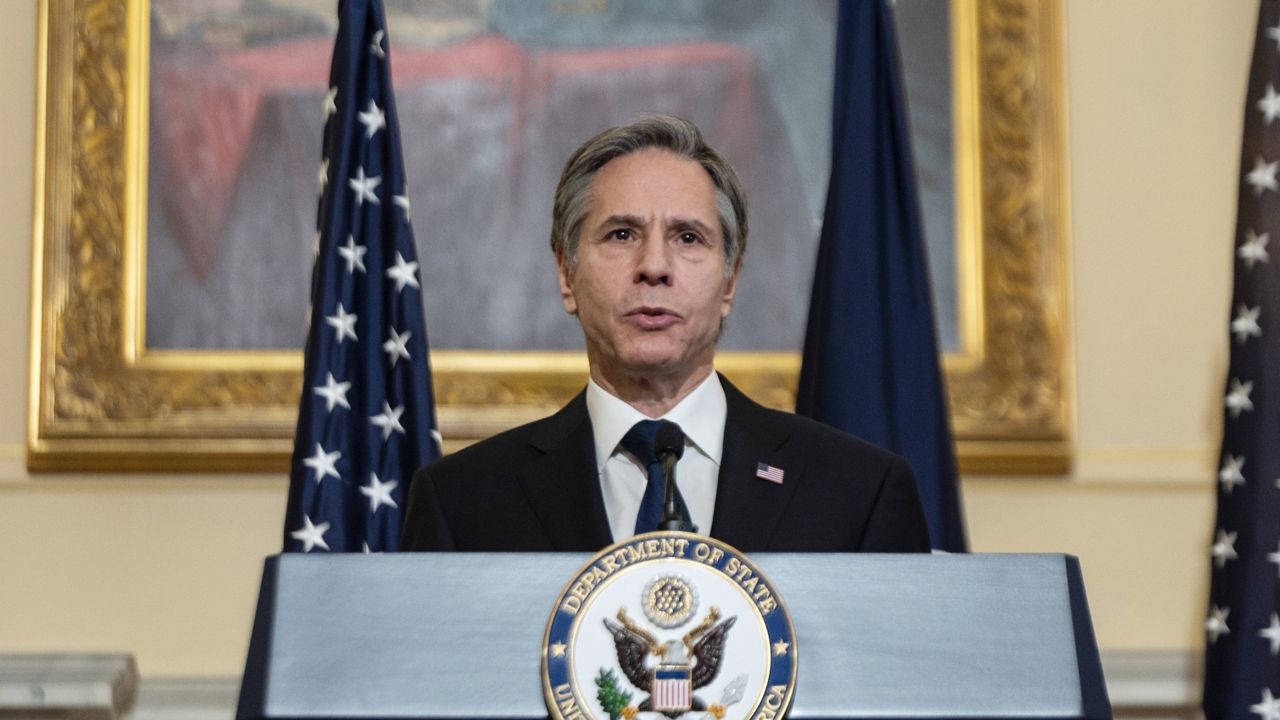U.S. Secretary of State Antony Blinken announced Wednesday that he will be meeting with his counterpart from the Chinese government in just over a week’s time.
Blinken wrote in a Twitter post that he will meet with People’s Republic of China Director Yang Jiechi and State Councilor Wang Yi on Thursday, March 18. The meeting, which will take place in Alaska, will see the officials “engage on a range of issues, including those where we have deep disagreements.”
Blinken will be joined by National Security Advisor Jake Sullivan, according to the State Department.
The meeting marks the highest-level, in-person exchange between members of President Joe Biden’s administration and those in the Chinese government. Biden spoke with China's President Xi Jinping over the phone several weeks after being inaugurated on Jan. 20, where Biden pressed the leader about trade and human rights concerns.
While Biden’s administration has largely sought to ease strained relations with a number of world powers, the president has continued to take a tough stance on China.
White House press secretary Jen Psaki made clear on Wednesday that U.S. officials will use the meeting to emphasize the administration's insistance on a "rules-based international system," telling reporters that it was strategically scheduled to take place after U.S. officials had met with allies in the Indopacific region.
"It was important to us that this administration’s first meeting with Chinese officials be held on American soil, and occur after we have met and consulted closely with partners and allies in both Asia and Europe," Psaki said during a press briefing.
The visit with several of China’s top officials will come on the heels of Blinken’s first overseas trip; he and Defense Secretary Lloyd Austin are traveling to Tokyo, Japan, and Seoul, South Korea from March 15-18 to “reaffirm the United States’ commitment to strengthening our alliances and to highlight cooperation that promotes peace, security, and prosperity in the Indo-Pacific region and around the world,” per a statement.
That trip will set the stage for the March 18 meeting between the U.S. and China, Psaki said, where officials "intend to discuss our expectations and will be frank in explaining Beijing’s actions...and our concerns about the challenges they pose to the security and values of the United States and our allies and partners."
"We will also talk about areas where we can cooperate, of mutual interest," she added.
The State Department said only that the two countries will discuss “a range of issues,” and it is likely that Blinken and Sullivan will attempt to pressure their counterparts on a number of specific points. In the 50 days of the Biden administration, Blinken has reaffirmed the government’s condemnation of China’s treatment of Uighur Muslims and other ethnic minorities, which the United States says constitutes a “genocide.”
The new administration has also not signaled any let-up in tariffs imposed by former president Donald Trump, restrictions on Chinese diplomats, journalists and academics in the U.S. or criticism of Chinese policies toward Tibet, Taiwan and Hong Kong. It’s also critical of Beijing’s attempts to further its increasing global influence through telecommunications technology, social media and educational and cultural exchanges.
Wang Yi, China’s top diplomat, recently demanded that Biden’s administration lift restrictions on trade and people-to-people contacts and cease what Beijing considers unwarranted interference in the areas of Taiwan, Hong Kong, Xinjiang and Tibet.
Wang urged the U.S. to “stop smearing” the reputation of China’s ruling Communist Party. “We hope that the U.S. policy makers will keep pace with the times, see clearly the trend of the world, abandon biases, give up unwarranted suspicions and move to bring the China policy back to reason to ensure a healthy, steady development of China-U.S. relations,” he said.
But the anti-China rhetoric hasn’t eased. Top Biden administration officials have vowed to use American power to contain what many Democrats and Republicans see as growing Chinese threats to U.S. interests and values in the Asia-Pacific and beyond.
The Associated Press contributed to this report.



